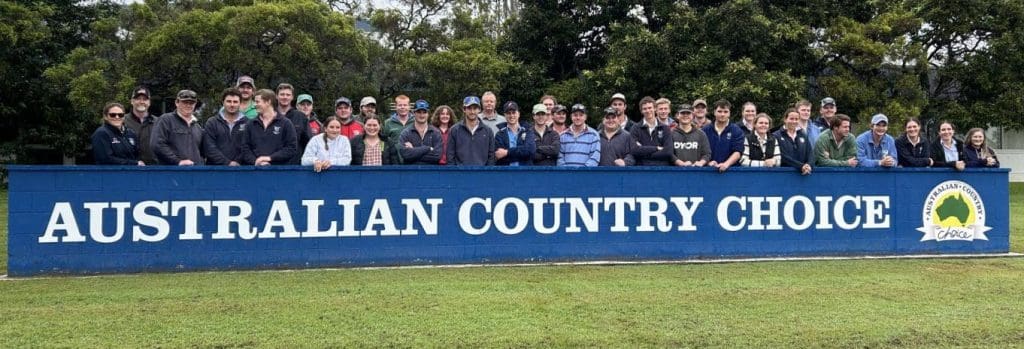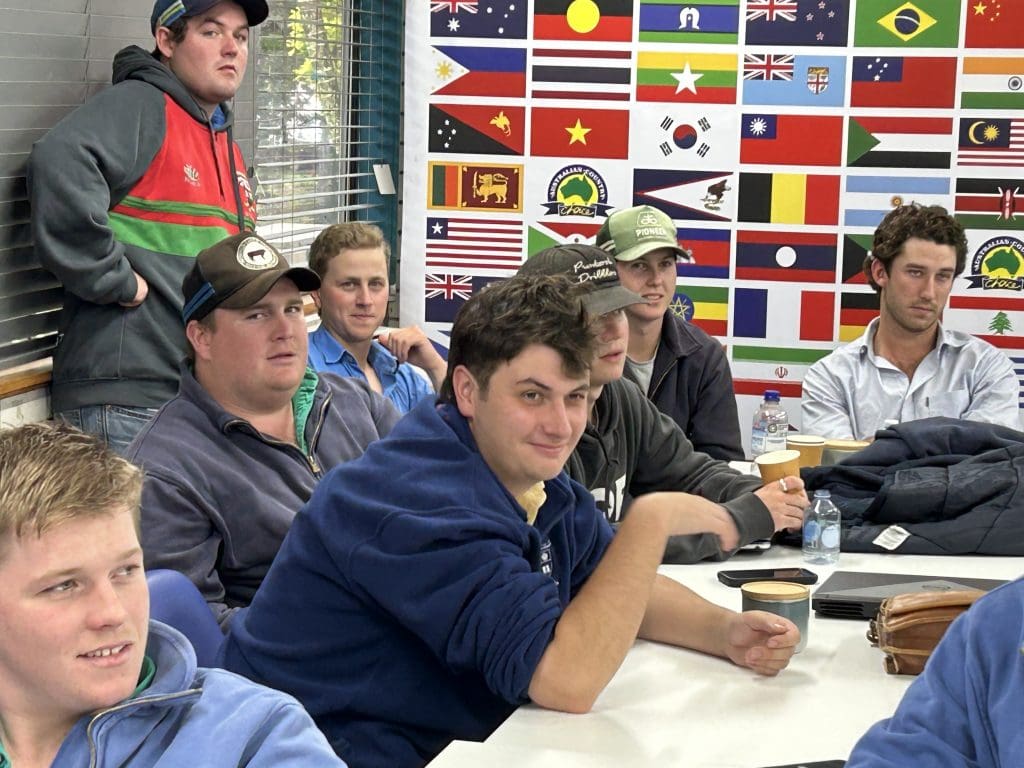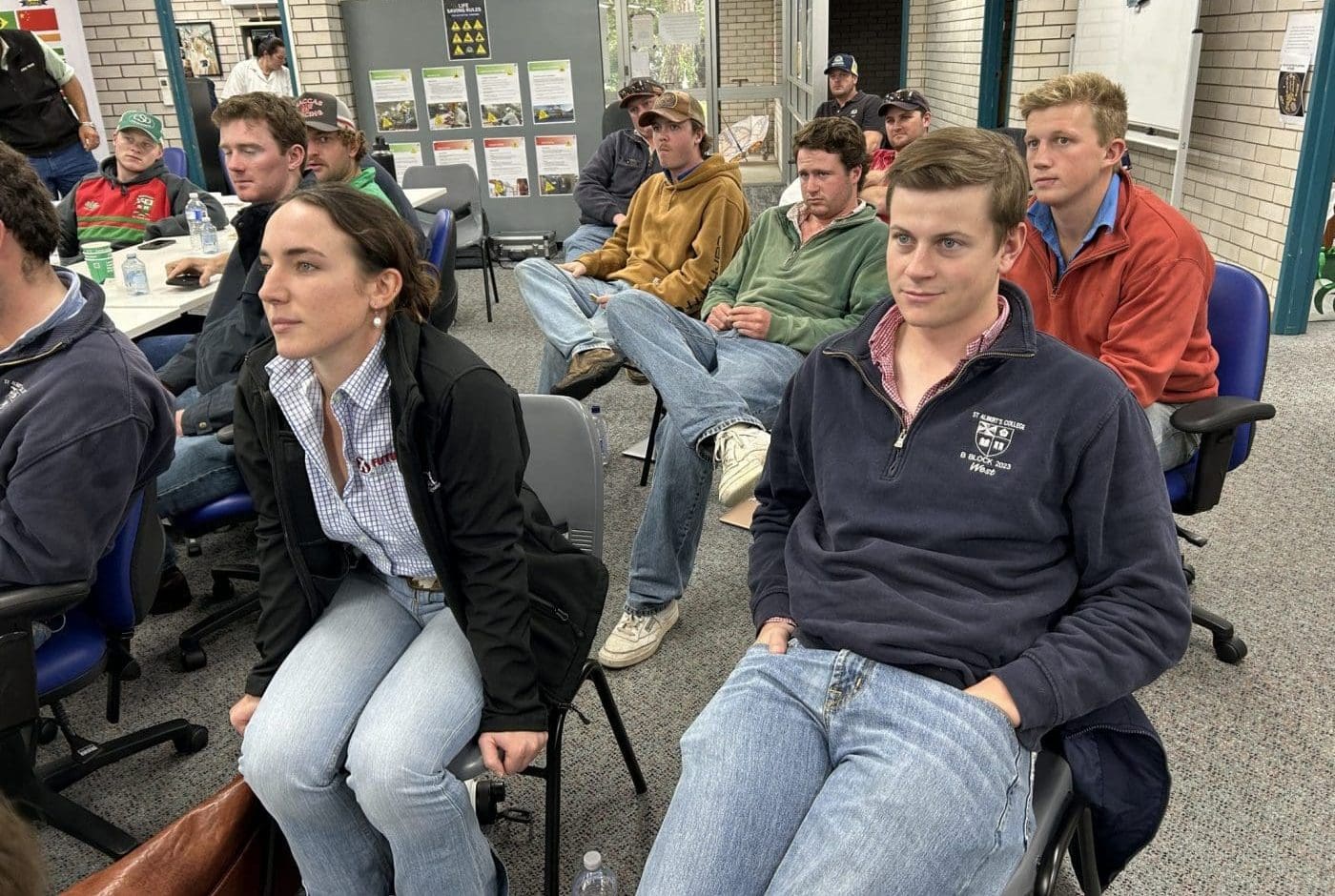Latest listings on AgJobs Central recruitment page:
- Livestock transport operator, Boorhaman Vic (DroverAg client)
- Senior farm hand – Mixed Farming, Tintinara SA (DroverAg client)
- Senior livestock hand, Dorrigo NSW (DroverAg client)
- Livestock person, Branxholme Vic (DroverAg client)
- HR business partner, Toowoomba Qld (Rimfire Resources client)
- Feedlot manager, Caroona Feedlot NSW (JBS)
- Mill supervisor, Caroona Feedlot NSW (JBS)
- Operations manager, Canobie Station Qld (AA Co)
- Bore runner, Canobie Station Qld (AA Co)
- Cook, Julia Creek, Western Qld (AA Co)
- Domestic, Canobie Station Qld (AA Co)
- Farm manager, Bushy Park Tasmania (Aurora Dairies)
- General manager operations, Melbourne Vic (Rimfire client)
- Senior financial analyst, Bondi Junction NSW (Gunn Agri Partners)
- Senior manager – investor relations, Bondi Junction NSW(Gunn Agri Partners)
- Project administrator, Toowoomba Qld (Rimfire client)
- CEO, Herefords Australia
- Farm manager, fine wool Merino breeding, Crookwell NSW (DroverAg client)
- Farm manager, East Stirling, South Coast WA (Wilga Farming)
- Stockyard designer/area rep, Wagga Wagga NSW (Proway Livestock Equipment)
- Livestock hand – dynamic feedlot role, New England – NSW (DroverAg client)
Click here to access these and other exciting meat and livestock supply chain positions currently listed on AgJobs Central.

UNE ag science students attended the ACC pitch-fest
RECYCLING cellulose from undigested cattle feed and undervalued revenue streams kept some of Australia’s brightest young meat-science brains busy in an industry pitch-fest recently.
Several project ideas presented by University of New England students focussed on recycling paunch contents – a meat processing by-product that costs the industry millions in annual disposal costs.
Making their presentations during a visit to Australian Country Choice’s Brisbane beef processing facility, the third and fourth-year rural science and agriculture students shared their visions for ways to generate increased revenue for processors by reducing costs, generating novel products or converting cost centres to income streams.
Three groups focused on generating value from rumen contents by using the waste for energy generation; to make biodegradable fire-lighters; and creating polymer sheets.
Recent research has shown that methane extracted from bio-digesters could be increased by treating the waste with sodium hydroxide, leading to a chemical reaction that would double rates of anaerobic digestion, said one of the student groups.
The group proposed that adding sodium hydroxide also reduced the sludge volume by 50pc.
The students presented figures suggesting a payback period of between three and four years for a set-up cost of $500,000, and an eventual total cost – incorporating an aerobic digester -of $4 million.

Fire-lighters
The second group called ‘Ignite Right’ suggested the use of paunch contents as biodegradable fire-lighters. The product would be dried, mixed with fragrant essential oils and flammable solutions and bound with wax to hold their shape.
Price comparisons suggest the product would retail at between 8c and 10c a unit, the student team said.
Meanwhile, microbal fermentation of paunch contents, coupled with poly 3-hydroxybutyrate-co-3-hydroxyvalerate (PHBV) treatment, could create a biodegradable, non-toxic plastic, according to another group.
The resulting polymer wrap could be used for many applications, even possibly as a lining for boxes, offering 14 days worth of waterproof protection before dissolving.
Waterproof film was also the aim of another group looking at the potential use of collagen derived from low-value hides and other sources. Their project sought to extract the collagen using enzymatic hydrolysis and then drying and macerating the product into particles small enough to be spray-applied onto carton interiors.
The cartons were proposed to be used for frozen meat and trim, reducing the risk of plastic entrapment during further processing and negating the need to have extended waterproof properties.
An engineering solution for blood collection was another concept detailed by the students. Sanitary blood collection for medical products such as plasma, iron and nutraceuticals could offer meat processors a valuable income stream, the students suggested.
Set-up costs for the circulating pump pipework would be around $250,000, with additional costs for pumps and sanitation.

Offal-based pet food
Other ideas presented at the pitch fest included offal-based pet food and an ear-tag retrieval and recycling system that could see 562,000kg of plastic diverted from landfill into recycled plastic.
‘Tag Cycle Solutions’ suggested that tags could be collected, cleaned and reused or recoated or melted down and made into new products.
University of New England associate professor of meat science, Dr Peter McGilchrist, said he taught students a lot about processing and production, and the Pitch Fest activity was a novel way for students to learn about all the other areas of beef processing – like water and energy use, waste management, automation, by-products and co-products.
“The students also have to engage design-led thinking to generate novel, economic solutions for complex problems faced by the red meat processing sector, along with developing a pitch that clearly states the problem, solution, cost of implementation and return on investment,” Dr McGilchrist said.
“If students can solve all problems using this framework, they make great employees.”
Australian Country Choice’s research and development manager Paul Gibson said ACC had participated in the Pitch Fest initiative with UNE over a long period.
“Each year we review, update and improve the program to be more relevant as a learning experience for the industry professionals of the future,” he said.
“The inclusion of the student project pitch segment focusing on meat processing challenges and potential solutions delivers value for the student, UNE, ACC, MLA, AMPC and the broader industry.”
“All credit to Dr McGilchrist for developing and delivering positive interactive education between industry and the university,” Mr Gibson said.


HAVE YOUR SAY